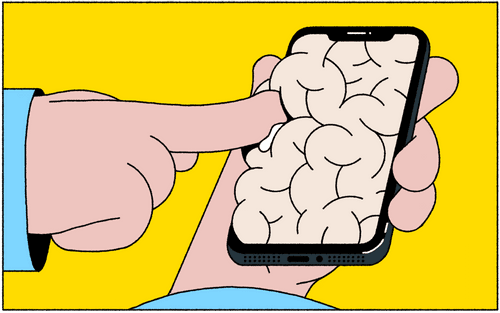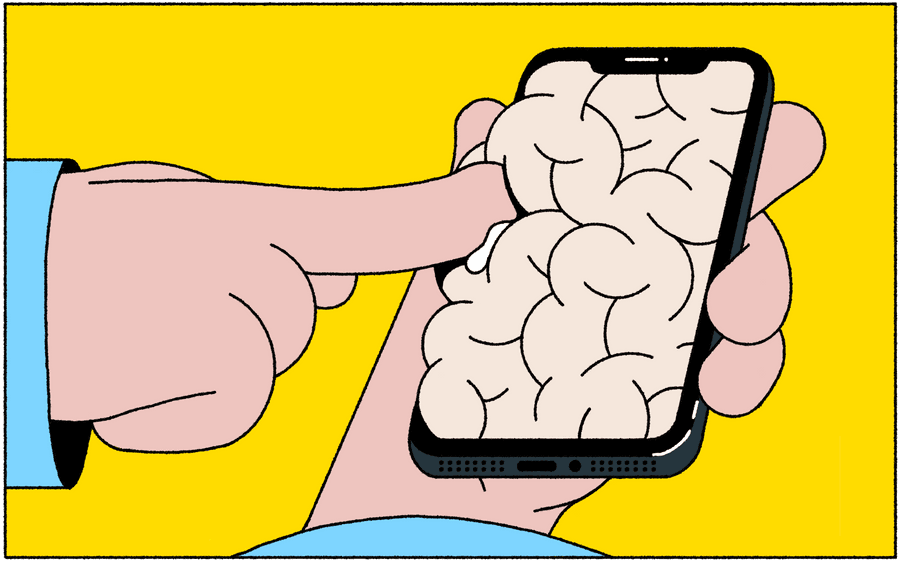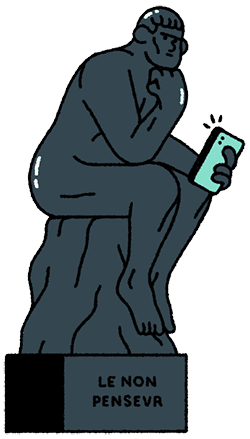How to Think Without Googling
Curated from: forge.medium.com
Ideas, facts & insights covering these topics:
7 ideas
·3.24K reads
19
Explore the World's Best Ideas
Join today and uncover 100+ curated journeys from 50+ topics. Unlock access to our mobile app with extensive features.
Our mental processes and habits
E-thinking has moved us into habits of grabbing our phones to answer the simplest of questions: finding the map directions to a known address, or calculating the square root of four.
While the verdict is still out if the internet is rewiring and/or dumbing us down, we should consider to what degree the internet is changing how we think.
136
588 reads
You can’t pay attention to anything
Attention is selecting which elements you look at, interact with, and remember. Attention can get tired, like a muscle.
The internet is a very powerful stimulus for attention. It offers information constantly, demanding and overloading a system that was designed to function in the low to medium social networks of the natural world.
133
445 reads
The burden of task-switching
Trying to protect oneself from boredom and the fear of missing out (FOMO), has caused people to switch from tab to tab, or screen to screen on the desktop.
People switch between content on computers every 19 seconds, viewing the content for less than a minute. Multitasking this way breaks concentration. You lose time with this and context-switching and deplete your available mental energy.
141
420 reads
Reclaim your attention from the internet
This is not a fight against the internet, but a fight against a society that is obsessed with speed and productivity made possible by the internet. You can practice resistance.
- Close some of your tabs.
- Shut off your notifications.
- Don't answer an email for a few days.
- Stop listening to podcasts at 1.5x-speed.
- Take time for silence and introspection.
Your brain network, associated with creativity and imagination, becomes active when your task-oriented networks are shut off. You might become more productive as a result.
163
432 reads
How your memory works
Your memory comes in a variety of subtypes:
- Episodic memory: remembering events that happened, such as your wedding day.
- Semantic memory: remembering facts like the sky is blue, or where you went to school.
- Procedural memory: remembering how to drive your car.
- Transactive memory: knowing where to find information. This memory is behind most of the advances in human society.
210
480 reads
Storing information
Storing information, when it is filed in transactive memory, makes it disastrous for remembering later. You may have a disjointed set of thoughts that you have trouble remembering and using.
129
365 reads
How to remember facts better
Our brains are organized through networks of related concepts, stories, or the overall perception of a topic. When you learn a new fact, it gets embedded in a nest of everything else you know. The tighter the connections, the better you will remember and recall the information.
If you want to remember facts better, create a little contextual nest for your new fact to live in: Read some background. Consider what you've just read. Think about the terms you already know. Write it down or draw little images.
181
519 reads
IDEAS CURATED BY
Bentley X.'s ideas are part of this journey:
Learn more about health with this collection
Effective note-taking techniques
Test-taking strategies
How to create a study schedule
Related collections
Similar ideas
4 ideas
8 Ways To Help You Learn Everything Faster
lifehack.org
2 ideas
How to Ask for Help When You Need It Most
lifehack.org
5 ideas
Read & Learn
20x Faster
without
deepstash
with
deepstash
with
deepstash
Personalized microlearning
—
100+ Learning Journeys
—
Access to 200,000+ ideas
—
Access to the mobile app
—
Unlimited idea saving
—
—
Unlimited history
—
—
Unlimited listening to ideas
—
—
Downloading & offline access
—
—
Supercharge your mind with one idea per day
Enter your email and spend 1 minute every day to learn something new.
I agree to receive email updates



